6. The Hateful Eight
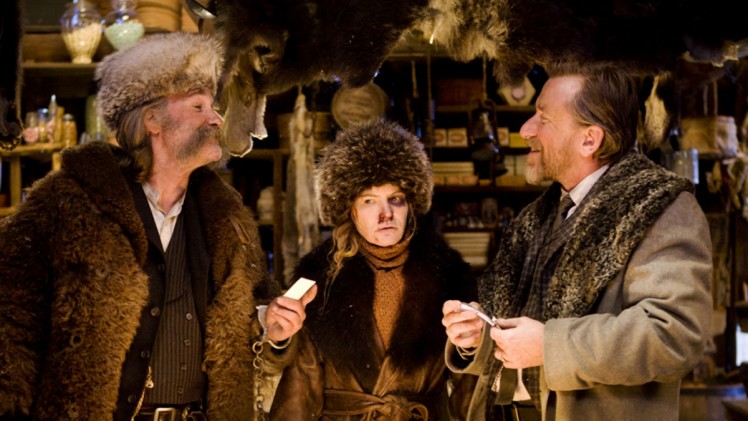
This picture had so much promise. Sadly, Quentin Tarantino’s Agatha-Christie-esque tale doesn’t really beg you to revisit the film (not nearly as much as Christie whodunits or Tarantino’s pop culture defining previous works). After three hours of daggering eyes, trigger-awaiting fingers and Marquis Warren’s lengthy tale about oral sex (completely necessary, for some reason?), we get the final showdown.
Warren and Chris Mannix, two enemies, are finally on the same playing field, since both are on their way to the gates of Hell anyways. Mannix takes the fake letter Warren has been carrying (supposedly by Abraham Lincoln), and they share a touching minute before croaking. I guess attempting to put some heart in the coldest film of 2015 is an earnest attempt, but it ends on a head-nod rather than a gut-punch.
Maybe a quick aside from the last-one-standing before a darkly comedic collapse would have ended this one on a bang. Trying to add a last-attempt at sympathy in a three hour film where two thirds take place in one single room feels like a testing of patience.
Maybe it’s to show that these people aren’t truly hateful when they die slowly (and willing to forgive each other), but it could also have been done way better (especially when Ennio Morricone is scoring your film, for crying out loud!).
7. The Hobbit
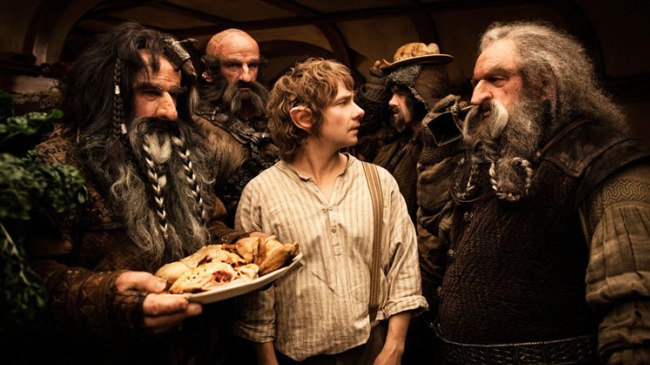
No, I am not including The Lord of the Rings. That half-hour ending is vital, in my opinion. Look at how many story lines you have to wrap up! Look at how long the opening was (yeah, you didn’t think about that, did you?). It naturally works; well, a hell of a lot better than any of the The Hobbit parts, really. The Hobbit, on the other hand, was stretched way too long.
One book should never have been three films (hell, even the initial two-film plan was a bit of a stretch, but much more digestible). This entry kind of dabbles within all three films. The ending of An Unexpected Journey? The least offensive, but still felt more like a teaser of the next film (rather than a conclusion of one major chapter in a cinematic trilogy, refer to The Fellowship of the Ring to see a much better resolution).
We get it, we can’t wait to see this dragon (though, wouldn’t completely avoiding showing the dragon have created more mystery?). The Desolation of Smaug was borderline sacrilegious, with the cliffhanger ending that none of the The Lord of the Rings films ever guilt-tripped you with.
Then you have The Battle of the Five Armies, where all of that back-at-home stuff feels more taxing. The difference is that this is one tale that was pulled on for way too long, unlike the many loose ends needing to be tied in The Return of the King.
One final note in this rant is that most of these conclusions worked in a cinema, when you had a year to wait for the next picture. Who wants to deal with Smaug being a jackass for an hour, only for him to tease you about having to pop in the next disc at the end of this turmoil?
8. The Life of Emile Zola
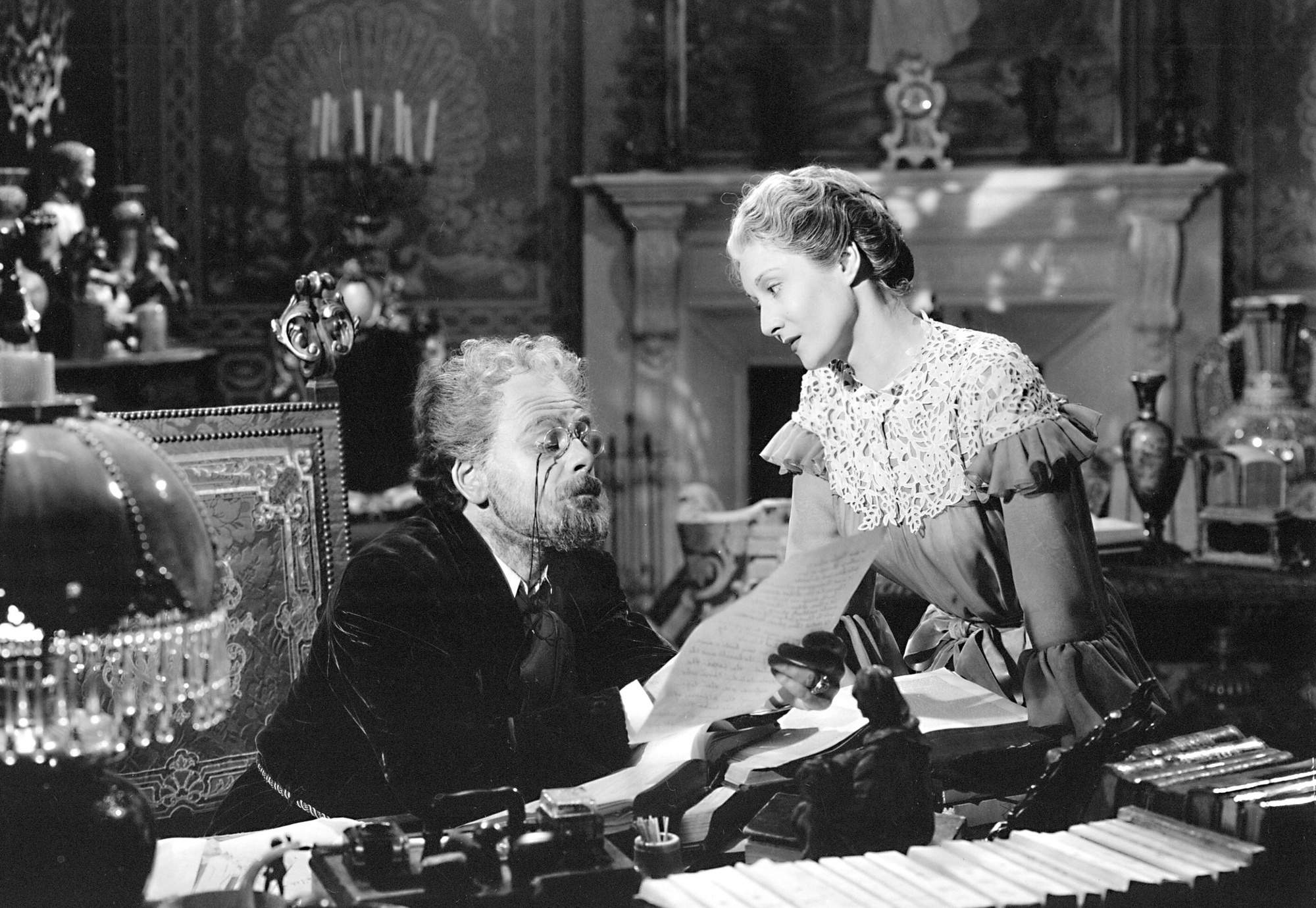
The title of this film is a little baffling as well. The film most certainly does not concern the entire life (or even a major portion) of the French author Emile Zola, but, rather, Zola’s efforts to help Captain Alfred Dreyfus during the aptly named Dreyfus affair. This is a vastly underrated Best Picture winner, but that does not make it exempt from being considerably flawed in mostly minor ways. The one major way?
Director William Dieterie felt it was necessary to still make this film somehow a strict biopic on Emile Zola, even though it really is about a specific debate. We see Zola pass away by carbon monoxide poisoning that leaked from his stove. I understand that this takes place right before Dreyfus is absolved of his allegations, but this could have been an anecdote.
Focus could have made this film go from a barely-biopic into a solid political and legal battle that happened to be based on real events (a biographical picture and a story based on real life aren’t the same thing, kids).
9. Lincoln
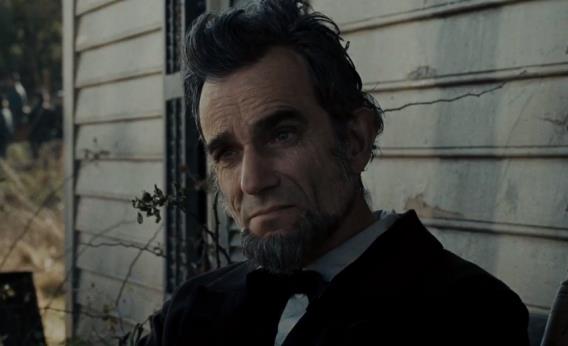
For a modern Steven Spielberg film, Lincoln is quite good. It’s extremely sentimental, but you’re silly if you don’t expect that going in. There are great performances, interesting character dynamics, and spectacular sets. It’s Oscar bait, but it knows it, and you’ll be fine with the film if you know it, too. However, one part that is debatable is the absolute ending. Abraham Lincoln (duh, who else?) puts on his iconic hat and marches off into the distance to see a play.
We all know how this ends; yet, that is literally the problem. We cut right to the resolutions that occur right after the infamous assassination. We don’t see the actual attack. If we’re going to revisit the most well-known murder in American history, the full impact should at least be felt. Or, here’s another idea: why even bother showing this at all? This is a simple anecdote that could have been placed in text form.
We know how this all ends. This isn’t a story of Lincoln’s entire life, but instead his importance during the Civil War. This is one of many examples of Spielberg overstepping the line with his need to make the perfect Hollywood ending, but this one hurts a lot because Lincoln is possibly his finest film of this decade.
10. Nymphomaniac
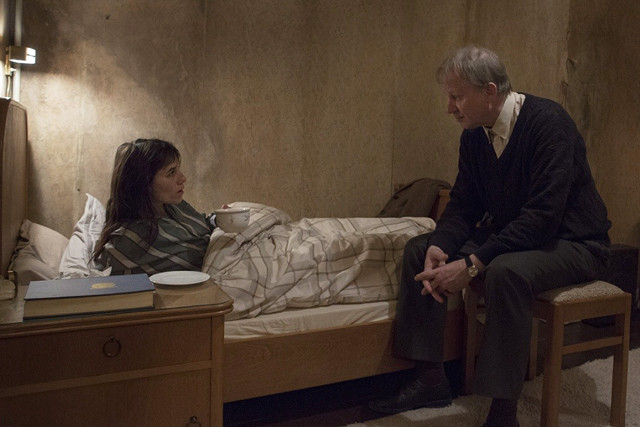
Look, I love Lars von Trier’s polarizing work as much as the next writer on this site. But, the older I get, the more Nymphomaniac just sits less and less well with me. The flaws don’t really age that well. The major complaint I have is the ending to this many-hour complex exploration through the human psyche. The first time I saw the film was the edited cut in theatres (one part at a time, of course).
When the film cuts to black with an audio track of what is going on, I thought “well, maybe this is temporary. Maybe this is in the edited film as a tossed-on way to avoid showing us the actually gruesome ending in the actual version”. How can you not think that way, when Seligman returns to try and rape Joe? But, no. I watched the unedited, complete version (plethora of real sex scenes and all), and it ends the same way. This is, without a doubt, an unapologetically lazy way to end such a gargantuan film.
First off, Seligman just turns on Joe at the drop of a hat after these hours of stories? Did he even listen to most of what she said at all? Secondly, what is with the cutting to black? It doesn’t make it more daring, it just feels incomplete. Having Seligman end as an actual good guy, and Joe finally completely safe would have been perfect. We don’t need extra von Trier edginess, because we’ve had that for nearly six hours anyways.
What would have been an actual risk by the supposed risk-taking director is to finish on a simple note after a whirlwind of an experience. Instead, we had to push the bar one more time, and it’s half assed nature is impossible to not roll your eyes at.